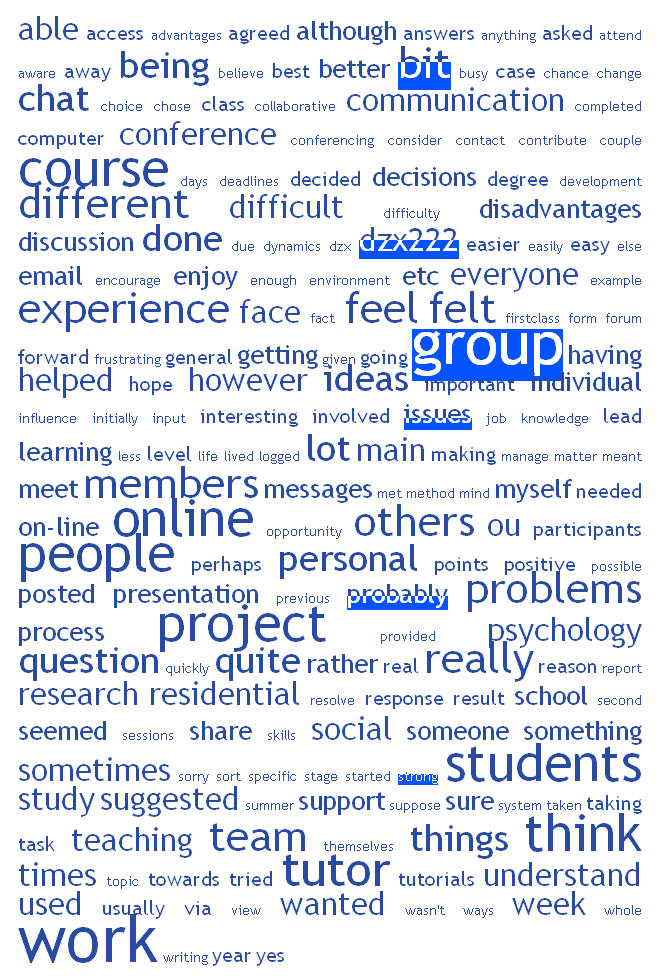I came to my data from the point of view of communities. How do communities learn together? Why is it valuable to learn as a member of a community? However, on closer examination, I’m not studying a community. My data comes from task-based groups (thanks for that insight, Etienne). True, they have been structured to draw on benefits of community learning and they do, in some ways, act as communities. But they’re not communities. If I want to go and study an online learning community, I should be looking at Schome, which is a far better example.
Setting community aside; what have I got? Well, as my supervisor said the other day – you’ve got talk, and that’s what’s interesting. But what I find really interesting is that that is just what I have not got. I have got no talk. No talk whatsoever. The students and tutors think they’re talking, they refer to themselves as talking, but they are not talking. Even when I interview them, they are not talking.
They’re communicating via text, and what you can do via text is very different to what you can do via speech. Yes, you can challenge opinions and defend opinions and access a range of opinions as you can in speech. But you can do that at the same time as you refer back to earlier stages of the argument. You can build on other people’s points or challenge each one separately. You can ponder what they have said for a minute, or two minutes, or half an hour.
And this is what I see throughout my work. In my data, and in my blogging data, and in my epistolary data and in my Schome data. Written conversation offers a new, and powerful, way of thinking together. But nobody’s using it for that reason. Everyone’s using it because it’s convenient and space- and time-independentor, in the case of blogging, because they enjoy it. Yes, if challenged, they may say that it supports reasoning and critical dialogue. But they don’t use it for that reason, and they don’t explain that reasoning to students, and nobody formally trains anybody in how to use textual conversation to support knowledge creation.
So why my data is interesting is because it shows that textual conversation is a powerful way of thinking together. And if that;s what is interesting about my data then that is what my research questions should be about (you knew I was going to get back to my research questions at some point, didn’t you? 🙂 )
